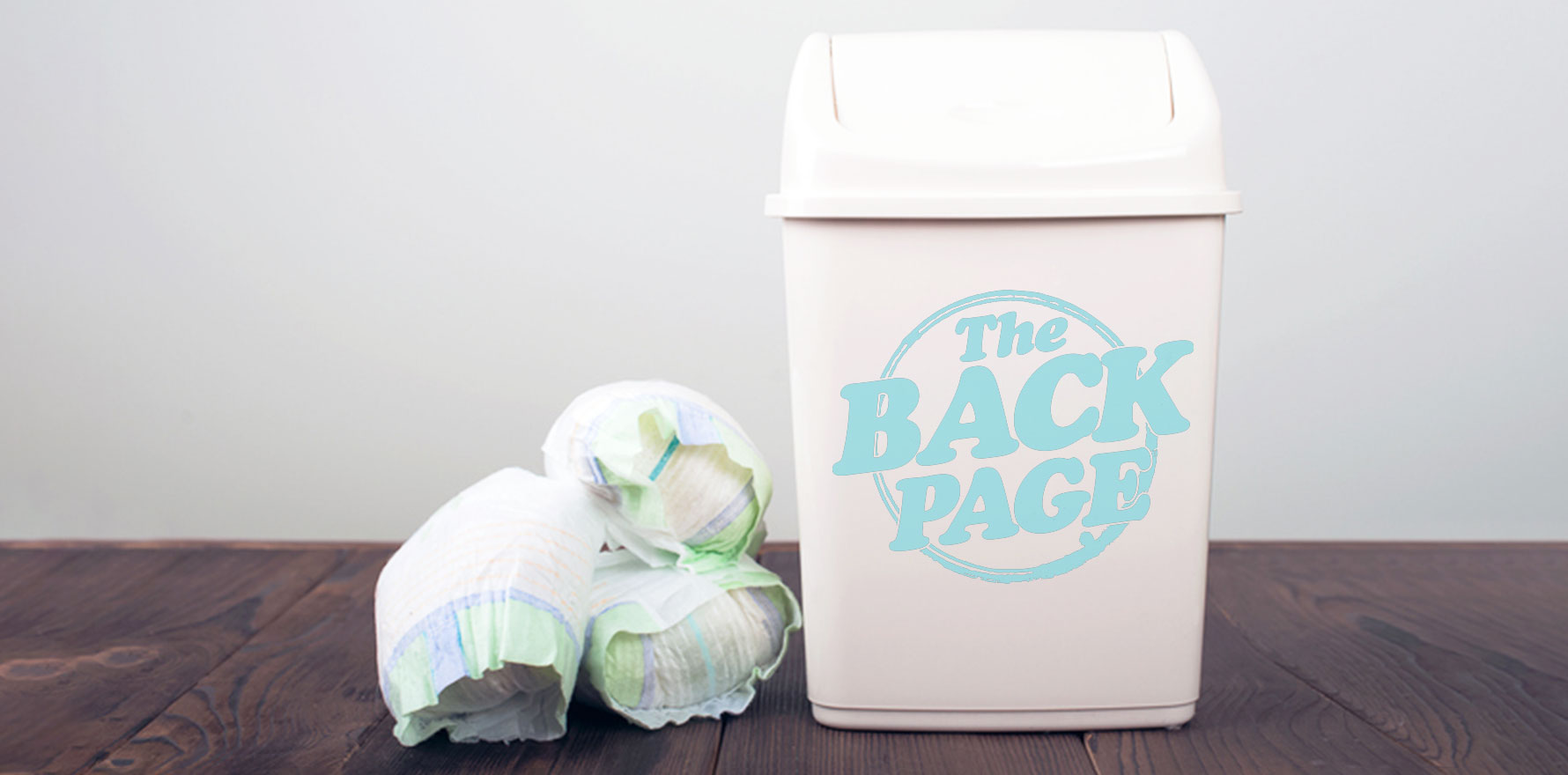Greener solutions are needed to dispose of dumps full of diapers.
As the father of three now adult children, your Back Page correspondent took great pride in the dexterity and efficiency he could display in the unsavoury chore of nappy changing.
Disposables or cloth, solids or fluids, no sanitary task was too fragrant nor disorderly for your diaper dynamo, who would often be heard to cheerily inform the prone offspring that one day they might have to be repaying the favour.
Thankfully, despite the ravages of Father Time, this is not yet (and hopefully never will be) the case.
But as Western populations rapidly age, the issue of adult incontinence is a growing problem, and one which is creating a significant pollution challenge for our already struggling environment.
What’s more, according to a study by boffins at Australia’s Southern Cross university, nappies for grown-ups are proving to be a far greater waste-disposal problem than the baby ones.
Their research, published recently in the journal Waste Management, estimates that by the end of this decade, waste from absorbent hygiene products generated by adults will outnumber that produced by infants by between four and 10 times.
But surely, I hear you cry, nappy makers have cottoned on to the disposal problem and are flooding the market with biodegradable or compostable versions that will mitigate the harms?
Well yes, the researchers say, but those “green” diapers are still primarily destined for landfills where they will continue to create significant environmental pollution in the form of greenhouse gases and leachate (water) emissions.
Lead author and environmental engineer Dr Emma Thompson Brewster of Southern Cross University said while it was true that more adult-nappy brands were presenting environmentally friendly options, this was side-stepping the “elephant in the room”.
“The burden on parents to choose the ‘best’ nappy product for their infants places unnecessary stress on many Australian parents, at a time while they are already experiencing the many stresses of raising small children. Used adult absorbent hygiene products receive far less public attention, but have comparable or greater impact on our community health, environmental health and taxpayers,” Dr Thompson Brewster said in a media release.
“This is due to the nation’s aging population and associated age-related health conditions. While our expertise is on the waste management side of the problem, the trend highlights the heavily stigmatised issue of incontinence in the over-65 years population, which may have better solutions related to improved access to medical treatment like physiotherapy.”
Or another solution could be the creation of reusable incontinence pants, along the lines described here by the incomparable Billy Connolly. But be warned, you may well wet yourself laughing while watching this skit.
If you see something that challenges your continence control, whiz it on over to penny@medicalrepublic.com.au.


